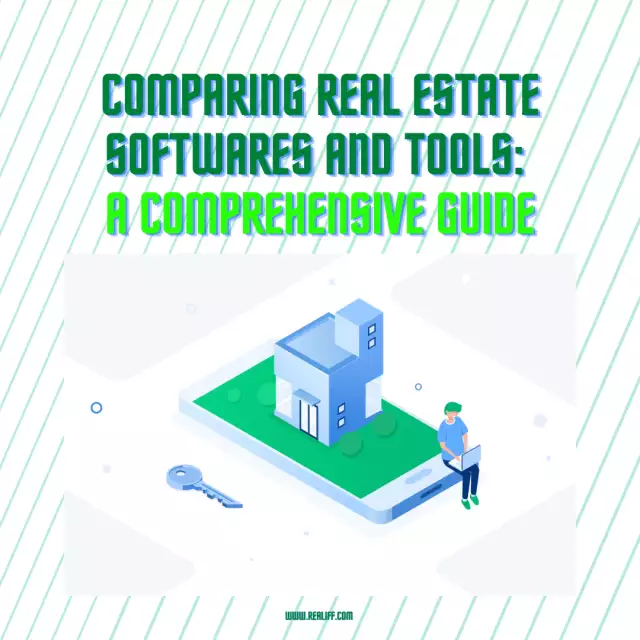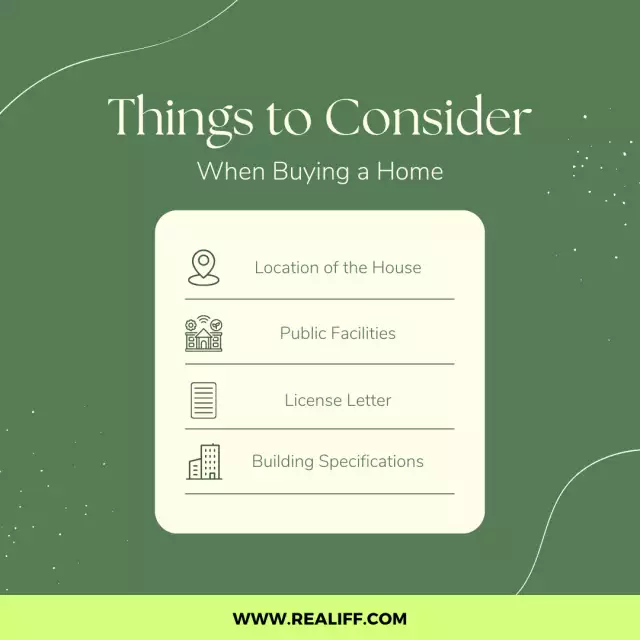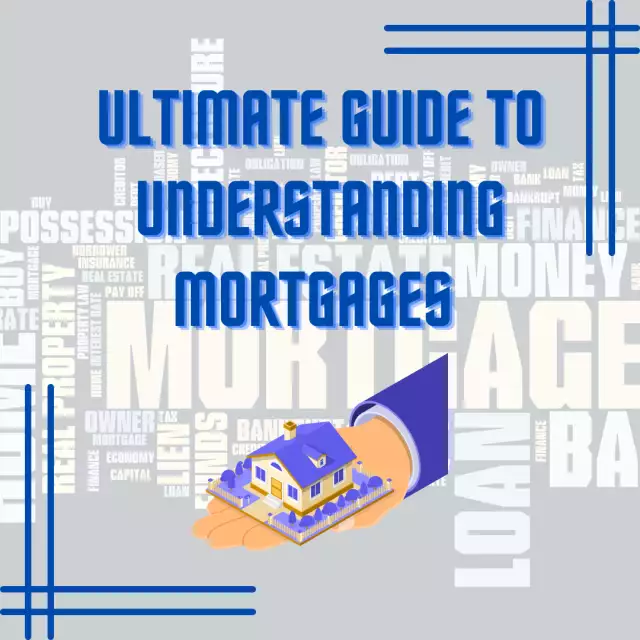The Ultimate Guide to Real Estate Software: Enhancing Your Business Efficiency
The Ultimate Guide to Real Estate Software: Enhancing Your Business Efficiency
In today's fast-paced real estate market, leveraging the right technology can make all the difference. Real estate software has revolutionized the industry, offering tools that streamline operations, improve client relationships, and boost overall productivity. With a plethora of options available, it can be daunting to select the right software for your needs. This guide will help you navigate through various types of real estate software, comparing their features, pricing, and suitability for different business models.
Types of Real Estate Software
Customer Relationship Management (CRM) Software
CRM software is essential for managing relationships and interactions with clients. These tools help real estate professionals store and organize client information, automate follow-ups, and maintain communication efficiently. Popular CRM options in real estate include Pipedrive, Contactually, and Realvolve. These platforms offer features like lead management, customer segmentation, and automated marketing, making it easier to nurture client relationships and close deals.

Marketing Automation Software
Marketing automation software enables real estate agents and brokers to streamline their marketing efforts. These tools can handle email campaigns, lead generation, social media management, and more. Software such as HubSpot, Marketo, and Pardot are widely used for their robust automation capabilities, allowing users to reach their target audience effectively and convert leads into clients.
Property Management Software
Property management software is designed to simplify the management of rental properties. These tools help property managers handle tenant relations, track rent payments, manage maintenance requests, and monitor occupancy rates. Leading property management software includes Buildium, AppFolio, and Rent Manager, all of which offer comprehensive solutions for managing single-family homes to large apartment complexes.
Transaction Management Software
Transaction management software facilitates the buying and selling process by providing a centralized platform for managing real estate transactions. These tools ensure all parties involved can communicate, track documents, and complete tasks efficiently. Popular choices include Dotloop, SkySlope, and DocuSign, which offer features like electronic signatures, document storage, and compliance tracking, making transactions smoother and more organized.
Key Features to Look For
When selecting real estate software, consider the following key features:
Contact Management
Effective contact management is crucial for maintaining detailed client records, including contact information, property preferences, and communication history. This feature helps streamline interactions and improve client satisfaction.
Marketing Automation
Look for tools that offer comprehensive marketing automation, including email campaigns, social media management, and lead nurturing. These features can significantly enhance your marketing efforts and drive client engagement.
Property Management
For those managing rental properties, software should provide functionalities for rent collection, lease management, and maintenance tracking. This ensures smooth operations and tenant satisfaction.
Transaction Management
Choose software that offers robust transaction management capabilities, such as document handling, task tracking, and secure communication channels. This is essential for ensuring efficient and compliant real estate transactions.
Mobile Accessibility
Given the mobile nature of the real estate industry, it’s important that the software you choose is accessible on the go. Mobile-friendly platforms allow agents to access data and perform tasks from anywhere, increasing flexibility and responsiveness.
Pricing Overview
The cost of real estate software varies based on features and support levels. Here’s a general pricing overview:
CRM Software
- Pipedrive:Starts at $15 per month
- Contactually:Starts at $69 per month
- Realvolve:Starts at $99 per month
Marketing Automation Software
- HubSpot:Free basic plan, paid plans start at $50 per month
- Marketo:Contact for pricing
- Pardot:Starts at $1,250 per month
Property Management Software
- Buildium:Starts at $50 per month
- AppFolio:Starts at $250 per month
- Rent Manager:Contact for pricing
Transaction Management Software
- Dotloop:Free basic plan, paid plans start at $29 per month
- SkySlope:Contact for pricing
- DocuSign:Starts at $10 per month
Suitability for Different Real Estate Businesses
CRM Software
Suitable for all types of real estate businesses, including solo agents, brokerages, and property management companies. CRMs are versatile tools that help manage client relationships and streamline communication.
Marketing Automation Software
Ideal for agents and brokerages looking to enhance their marketing efforts and automate repetitive tasks. These tools are valuable for generating and nurturing leads effectively.
Property Management Software
Best suited for property management firms and real estate investors with a portfolio of rental properties. These tools simplify the management of tenants, leases, and maintenance tasks.
Transaction Management Software
Beneficial for all real estate businesses involved in buying and selling transactions. These platforms streamline the transaction process, ensuring smooth and compliant deals.

Common Questions about Real Estate Software
Q: What is CRM software?
A: CRM (Customer Relationship Management) software helps manage interactions with clients and customers, including lead capture, nurturing, and segmentation.
Q: What is marketing automation software?
A: Marketing automation software streamlines marketing tasks like email campaigns and social media management, helping businesses engage their audience effectively.
Q: What is property management software?
A: Property management software aids in managing rental properties, including rent collection, lease management, and maintenance requests.
Q: What is transaction management software?
A: Transaction management software facilitates the real estate transaction process by providing tools for document management, communication, and compliance.
Q: How much does real estate software cost?
A: Costs vary widely, from free basic plans to premium plans costing hundreds of dollars per month, depending on the software and features offered.
Q: Which real estate businesses are each type of software suitable for?
A: CRM and marketing automation software are versatile and suitable for all real estate businesses. Property management software is best for firms managing rental properties. Transaction management software is essential for businesses handling real estate transactions.
News and Developments in Real Estate Software
The real estate software market is continuously evolving, with new innovations and updates frequently emerging. Recently, there has been a significant push towards integrating artificial intelligence (AI) and machine learning into real estate software. These advancements are designed to enhance predictive analytics, improve customer service through chatbots, and automate more complex tasks.
Recent Legal Rulings and Financial Industry Responses
Recent changes in data privacy regulations have also impacted real estate software. Companies are now required to ensure that their software complies with stringent data protection laws, such as the GDPR in Europe and the CCPA in California. This has led to an increase in the development of secure, privacy-focused software solutions.
Expert Quote
"Technology is reshaping the real estate industry in profound ways. From CRM systems that enhance client relationships to property management tools that streamline operations, real estate software is essential for staying competitive in today's market." - Barbara Corcoran, Real Estate Mogul and Shark Tank Investor
The Most Comprehensive Tips for All Aspects of Real Estate Software
Navigating the complexities of real estate software can be challenging, but these tips can help you make informed decisions:
For Real Estate Professionals:
Stay Informed:Keep up with the latest developments in real estate software by following industry news and attending relevant webinars and conferences.
Communicate:Maintain open lines of communication with software vendors. Ask for demos and trial periods to thoroughly evaluate the software before committing.
Seek Legal Advice:Ensure that your chosen software complies with all relevant legal and regulatory requirements, particularly concerning data privacy and security.
Document Everything:Keep detailed records of your interactions with software vendors, including any agreements and communications.
Explore Multiple Options:Don't settle for the first software you come across. Compare several options to find the one that best fits your specific needs and budget.
Be Patient:Implementing new software can be a complex process. Allow time for training and adaptation to ensure a smooth transition.
For Software Developers:
Review and Update Features:Continuously improve your software based on user feedback and technological advancements.
Enhance User Experience:Focus on creating intuitive, user-friendly interfaces that make it easy for real estate professionals to use your software.
Provide Educational Resources:Offer training materials and support to help users get the most out of your software.
Stay Informed on Legal Developments:Keep abreast of the latest legal and regulatory changes that could impact your software.
Offer Flexible Pricing Models:Develop pricing plans that cater to businesses of all sizes, from solo agents to large brokerages.
Conclusion
Choosing the right real estate software can significantly enhance your business operations, improve client relations, and increase efficiency. Whether you're looking for CRM, marketing automation, property management, or transaction management tools, understanding your specific needs and budget is crucial. By carefully evaluating the features, pricing, and suitability of each type of software, you can select the best tools to support and grow your real estate business.
Realiff.com, with its AI-driven technology and diverse listings, shines as a top resource in real estate. It offers valuable insights for buyers and sellers. Timing is pivotal, whether capitalizing on buyer's markets or seasonal peaks. Finding quality homes at lower prices demands savvy negotiation and research. By leveraging these tools and strategies, Realiff.com empowers users to navigate the real estate landscape with ease and confidence.








